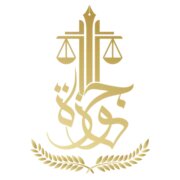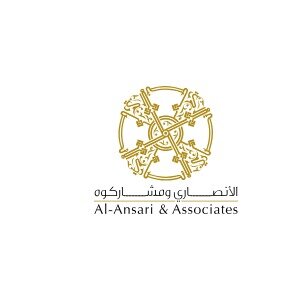Best Water Law Lawyers in Qatar
Share your needs with us, get contacted by law firms.
Free. Takes 2 min.
Or refine your search by selecting a city:
List of the best lawyers in Qatar
About Water Law in Qatar
Water Law in Qatar refers to the legal framework that governs the management, distribution, and use of water resources within the country. Given Qatar's arid climate and limited natural freshwater sources, water regulation is crucial for both environmental and societal wellbeing. Water Law covers a range of issues, including rights and restrictions on water usage, water quality standards, permitting and licensing for water extraction or desalination, and the responsibilities of both individuals and organizations concerning water conservation and management.
Why You May Need a Lawyer
People and businesses may require legal assistance with Water Law in several situations. If you are involved in agricultural, industrial, or construction activities that rely heavily on water usage, you may need guidance to ensure compliance with licensing and environmental regulations. Disputes over water access, rights, or quality are another common area requiring legal help. Individuals or companies facing investigations or sanctions regarding water misuse or pollution may need a lawyer to represent their interests. Additionally, navigating contracts or agreements involving water supply, infrastructure, or desalination projects often requires legal expertise to avoid conflicts and protect your rights.
Local Laws Overview
Qatar’s Water Law system is influenced by both local needs and international environmental standards. Key aspects include:
- Government ownership of almost all natural water resources, including groundwater and surface waters.
- Strict licensing requirements for the extraction of groundwater, operation of desalination plants, and use of water for commercial purposes.
- Comprehensive regulations aimed at protecting water quality and preventing pollution, especially industrial discharge into public water systems.
- Limitations on water wastage, with individuals and companies required to take measures for prudent use and sometimes for water recycling or reuse.
- Imposition of penalties for unlicensed extraction, pollution, or vandalism relating to water infrastructure.
- Active involvement of government bodies in monitoring, enforcement, and occasionally mediation of water-related disputes.
Frequently Asked Questions
What is the main law regulating water resources in Qatar?
Water resources in Qatar are mainly regulated by government decrees, environmental laws, and ministerial decisions. The Ministry of Municipality and Environment and the Public Works Authority implement and enforce these regulations.
Do I need a license to extract groundwater for personal or commercial use?
Yes, any extraction of groundwater, whether for personal, agricultural, or commercial use, requires prior approval and a license from the relevant governmental authority.
What are the penalties for unauthorized water extraction?
Unauthorized extraction of groundwater or use of desalinated water without a license can lead to fines, suspension of service, or even criminal charges in some cases, depending on the severity of the offense.
Can a private company establish a desalination plant in Qatar?
Private companies can operate desalination plants, but only after securing licenses and complying with governmental standards on environmental impact and water quality.
How are water disputes resolved in Qatar?
Most water disputes are resolved through negotiation or mediation facilitated by the relevant authorities. If not resolved, they may proceed to local courts.
Are there specific regulations for water quality?
Yes, there are national standards for drinking and industrial water quality. Violation of these standards can result in penalties and mandatory corrective action.
What obligations do businesses have regarding water conservation?
Businesses are required to use water efficiently, prevent wastage, and in some cases, implement water recycling systems, especially in sectors like industry and agriculture.
Is rainwater harvesting permitted in Qatar?
Rainwater harvesting is allowed but may require approval, especially if storage or use is significant. Compliance with safety and environmental standards is essential.
What should I do if I notice illegal water usage or pollution?
It is advisable to report illegal activities to the Ministry of Municipality and Environment or the Public Works Authority, who will investigate and take necessary action.
Can water rights be transferred or sold in Qatar?
Water rights are generally controlled by the state and are not considered private property. Transfers are rare and subject to strict regulatory controls.
Additional Resources
If you have questions or need support regarding Water Law in Qatar, consider reaching out to the following:
- Ministry of Municipality and Environment - Responsible for environmental regulations and water management permits.
- Public Works Authority (Ashghal) - Oversees public water infrastructure and supply services.
- Kahramaa (Qatar General Electricity and Water Corporation) - Manages water supply to households and industries.
- Local environmental law firms - For specialized legal consultation and representation.
- Environmental NGOs - Can provide guidance on rights and reporting environmental concerns.
Next Steps
If you need legal assistance in Water Law, start by identifying your specific issue, whether it is licensing, compliance, dispute resolution, or another matter. Gather all relevant documents such as contracts, permits, or correspondence with authorities. Consider consulting with a qualified lawyer who specializes in environmental or Water Law in Qatar. You may also want to contact the appropriate governmental body for initial guidance or to report an incident. Taking these steps can help ensure that your interests are protected and that you are in compliance with Qatar’s water regulations.
Lawzana helps you find the best lawyers and law firms in Qatar through a curated and pre-screened list of qualified legal professionals. Our platform offers rankings and detailed profiles of attorneys and law firms, allowing you to compare based on practice areas, including Water Law, experience, and client feedback.
Each profile includes a description of the firm's areas of practice, client reviews, team members and partners, year of establishment, spoken languages, office locations, contact information, social media presence, and any published articles or resources. Most firms on our platform speak English and are experienced in both local and international legal matters.
Get a quote from top-rated law firms in Qatar — quickly, securely, and without unnecessary hassle.
Disclaimer:
The information provided on this page is for general informational purposes only and does not constitute legal advice. While we strive to ensure the accuracy and relevance of the content, legal information may change over time, and interpretations of the law can vary. You should always consult with a qualified legal professional for advice specific to your situation.
We disclaim all liability for actions taken or not taken based on the content of this page. If you believe any information is incorrect or outdated, please contact us, and we will review and update it where appropriate.
Browse water law law firms by city in Qatar
Refine your search by selecting a city.

















